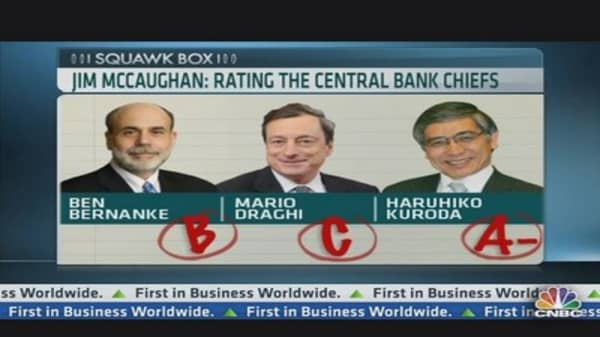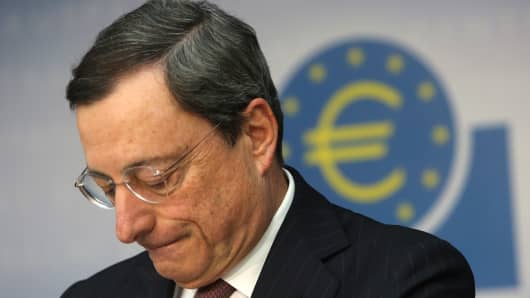As the school year draws to a close, report cards are in for some of the world's most influential central bankers as well. Here's who passed with flying colors and who didn't make the grade.
Bank of Japan (BOJ) Governor Haruhiko Kuroda received the highest grade at 'A-,' followed by Federal Reserve (Fed) Chairman Ben Bernanke who received a 'B', and the European Central Bank (ECB) President Mario Draghi, the worst performer, with a 'C', according to an assessment by Jim McCaughan, CEO of Principal Global Investors, a global asset management firm.
"The only reason he [Mario Draghi] got as high as 'C' is he's doing better than Jean Claude Trichet," McCaughan said, referring to the former president of the ECB.
"The problem to me is....we're talking a lot about a Fed exit, and what happens at the end of QE [quantitative easing]. [But] there is absolutely no sign of an exit from the ECB - they have massively increased their balance sheet. The economy has not responded, there is no transmission," he said.
Over the past two years, the ECB has increased liquidity to banks and cut interest rates, but the measures have not translated into economic growth. The euro zone economy contracted 0.2 percent in the first quarter from the previous three months. Now, there is talk that the ECB could further cut rates to take them into negative territory.
(Read More: ECB's Visco: Deposit Rates Could Go Below Zero)
As a result, the ECB will likely be a source of volatility going forward, McCaughan added.
By contrast, Bernanke has done a very "adept" job of signaling the Fed's next moves, he said, pointing to central bank's unemployment and inflation targets. In December, the U.S. central bank pledged to keep interest rates low until unemployment falls below 6.5 percent and inflation tops 2.5 percent.
(Read More: Fed to Keep Easing, Sets Target for Rates)
Despite the public debate over the timing of the exit from quantitative easing, McCaughan said, "It doesn't matter because the Fed is being very transparent about the debate. It has been crystal clear that there is majority around Bernanke for the course he is on."
(Read More: Fed's Plosser: Start Tapering Asset Buys in June)
Similar to the Fed, the BOJ's Kuroda has outlined a 2 percent inflation target until which the central bank says it will continue its aggressive bond purchases, providing more clarity for markets.





